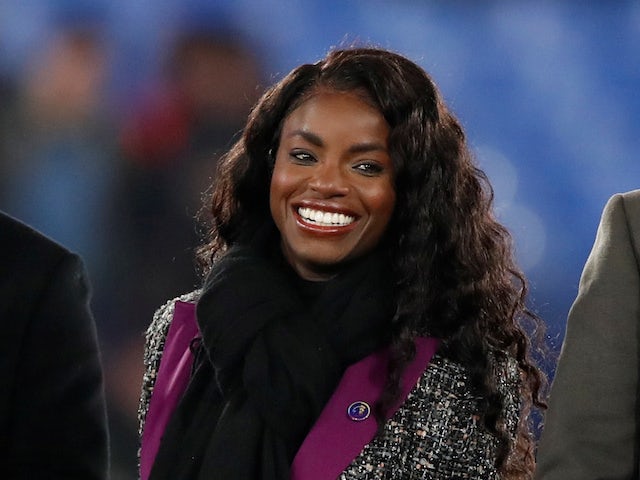Former England striker, Eni Aluko, says condemning racism on social media is not enough after the abuse aimed at Marcus Rashford, Bukayo Saka and Jadon Sancho; "I can't be on the same platform that I'm standing against"
Speaking with skysports, Eni Aluko has said the fight against racism lacks the "energy" that led to the collapse of the Super League plans, with the former England international also explaining why she will not return to Twitter until she hears about change on the platform.
England trio Marcus Rashford, Bukayo Saka, and Jadon Sancho were all subjected to racial abuse on social media after missing penalties in Sunday's Euro 2020 final defeat to Italy.
She says she does not believe condemning racism in social media posts is enough, and has deleted her Twitter account earlier this week. The ex-Chelsea and Juventus forward said others should do likewise until there is greater accountability.
"People don't care enough about racism," Aluko said. "When there was a suggestion the Super League was going to happen, there was pandemonium. For three days, pundits, fans, broadcasters, it was not going to happen, and we made a U-turn [against] some of the richest people in the world because we didn't want football to change in this country. People made sure that didn't happen.
"I don't really see the same energy for [the fight against] racism. I see people condemning on Twitter, but that's a given; you should condemn racism, but now we've got to move it up a notch and care a bit more.
"We've got to make actions where it hurts and pinches a little bit. I deleted Twitter, I'm not going to be on the platform until I see or hear about change. That's what you've got to do. Delete Twitter. Not just for four days, delete it until further notice, until there is IDs and identification online, so if you want to tweet racism, know you're likely to be arrested for it.
"If you're going to be abusive there has to be criminal consequences because you can't just do it on the street. We have to be really honest. People don't care enough, it has become a performative thing that people just talk about. I'm tired talking about it."
Elaborating on her decision to delete Twitter, a move Thierry Henry took earlier this year due to a lack of regulation, Aluko added: "We talk about hypocrisy, I can't be on the same platform that I'm standing against. It doesn't make any sense.
"This is what I'm saying about doing something that feels like a sacrifice. That's a stance that means something, if en masse millions of people got off Twitter, Twitter are going to feel that.
"I would encourage everybody to do the same, if you're serious about racism online, don't be on Twitter - delete it. Because until we really make a stance on a mass scale, and start making Twitter accountable, until we start to look at how Twitter is funded - and ask them questions about why they're advertising on a platform that has daily racism on it - we're not going to get anywhere."
Earlier this week, Home Secretary Priti Patel denounced the abuse of Rashford, Saka and Sancho in strong terms, saying it has "no place in our country and I back the police to hold those responsible accountable".
England defender Tyrone Mings pointed out that Patel has criticised the players in the past for their decision to take a knee before matches - which they believe is an important signal of their determination to fight against racism.
Aluko agreed that Mings "has a point", but spoke of her frustration that racism in football is still making headlines despite the fact players have been kneeling before games for more than a year.
"The government needs to be consistent in its calling out of racism. You can't be seen to allow or appease people who stand for racism, or apologists for racism, while also calling out racism. It needs consistency," Aluko added.
"We're going back to what people say. But what are people doing? What is the government doing, what is the change that is going to happen as a result of action?
"I would say the same to Tyrone, who has been amazing in his organisation and mobilisation of players to kneel, but I have to be honest, I'm equally frustrated about kneeling. I support it, I think it's powerful, but we're still here after a year talking about racism.
"So how much has changed as a result of kneeling? We need to do more. We need to understand what it's going to take to make change. Some of us including me gave up careers, sacrificed careers, to make a stance against racism. I'm not bigging myself up, but it's not enough to kind of do performative things that make a statement visually, and raise awareness, but I go back to it around the Super League - when people want to get to the pockets where it hurts, people do it.
"That's where we need to get to. We need to legislate, we need to make sure that the brands and advertisers on these platforms are put under pressure. Clearly we need to do more than kneeling."



